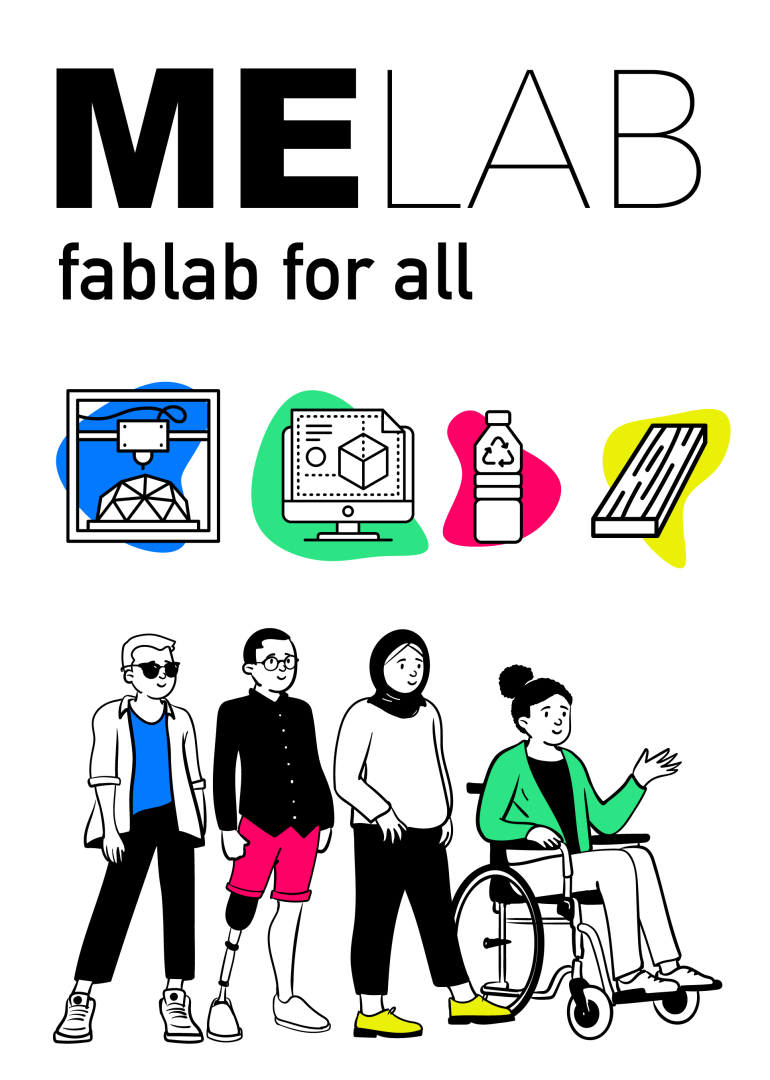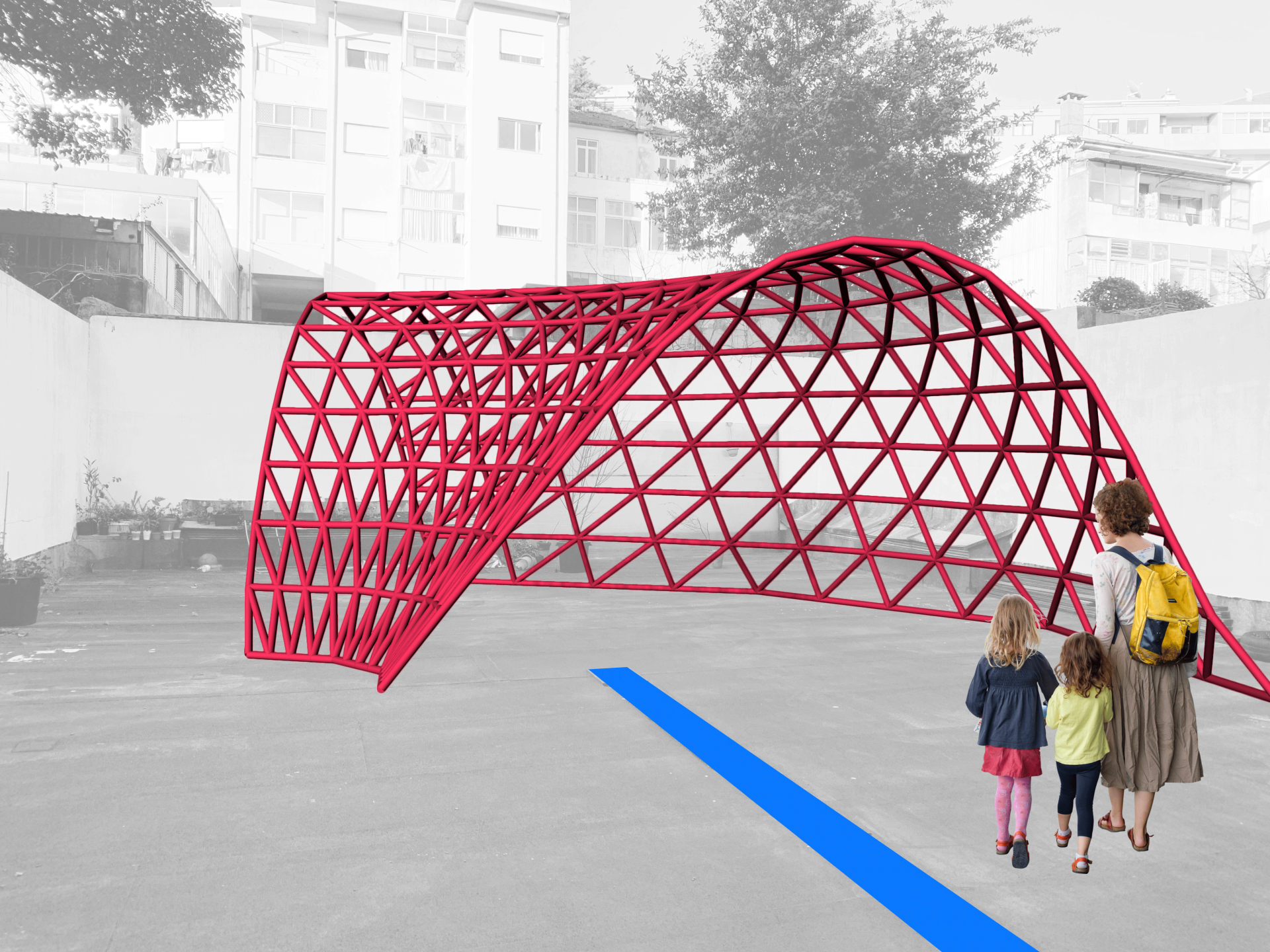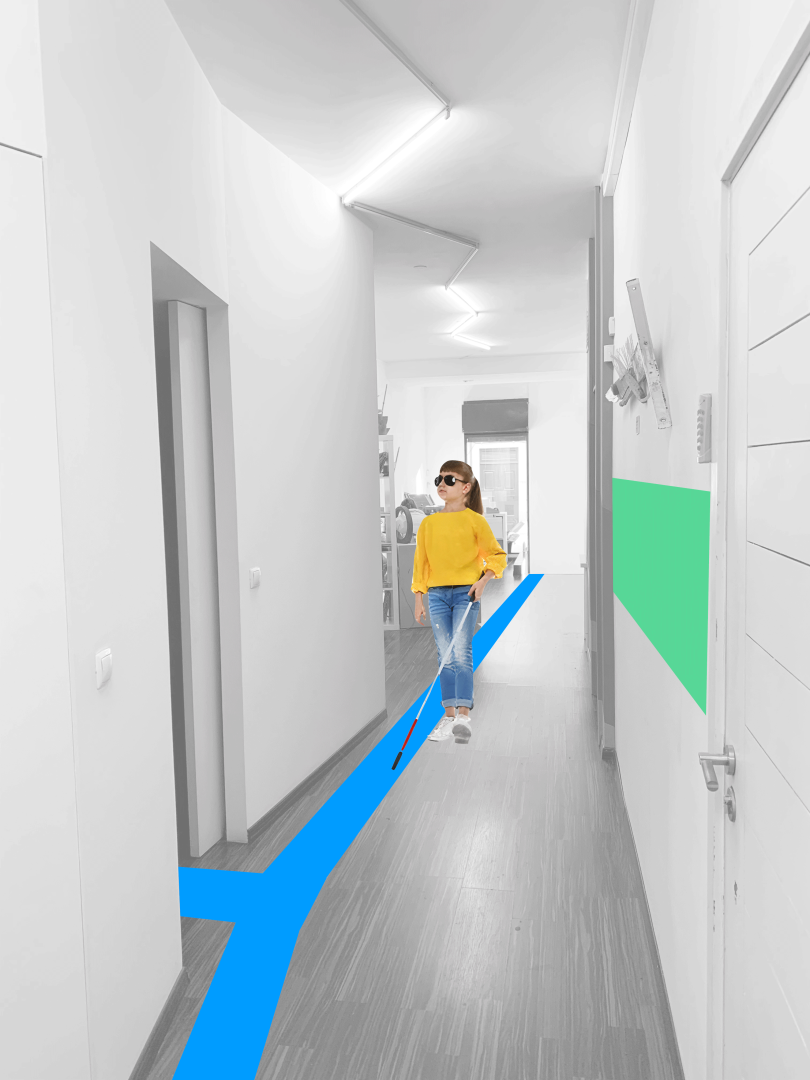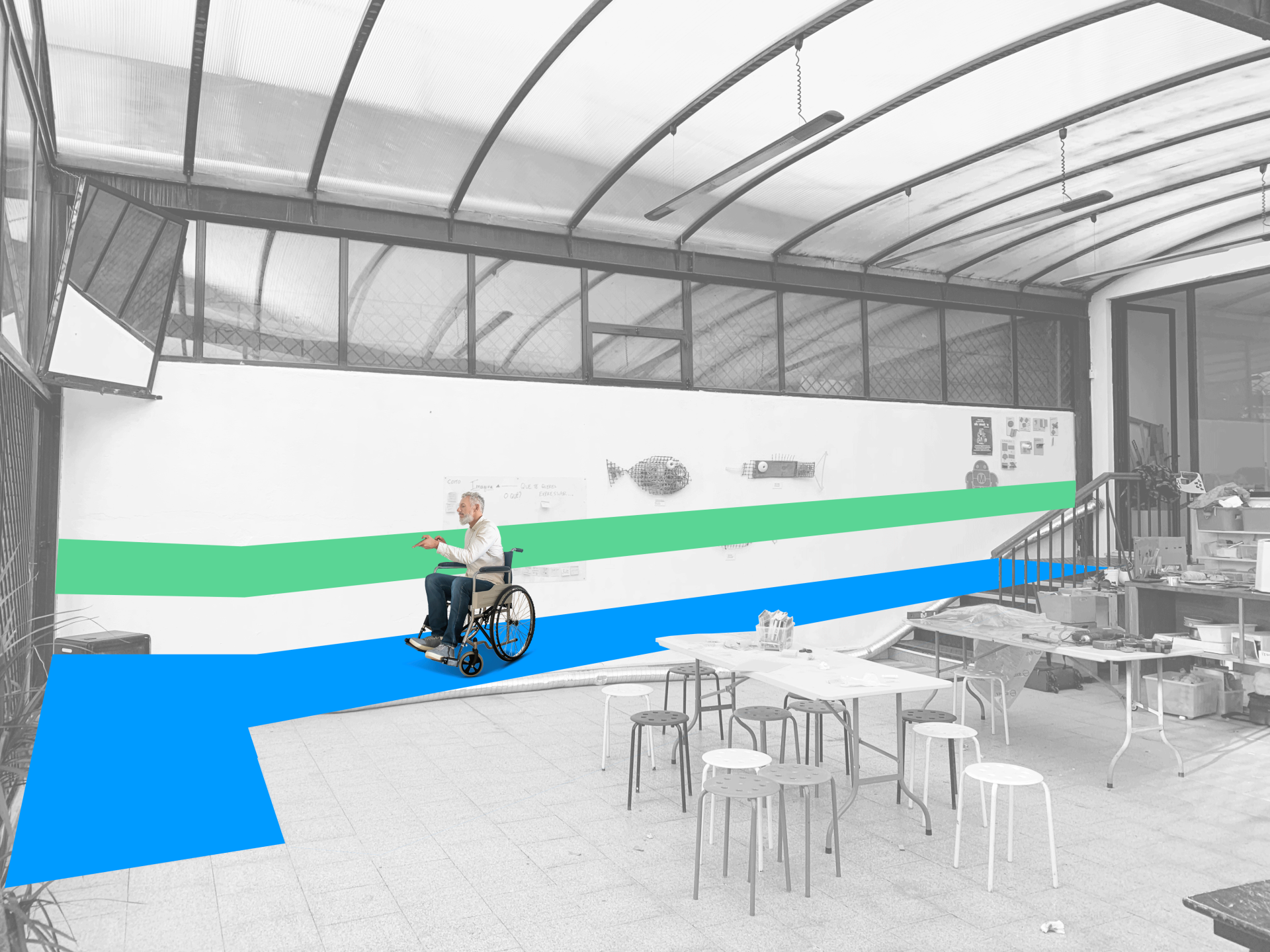Me-Lab
Basic information
Project Title
Full project title
Category
Project Description
Open-Source Inclusive FabLab & Learning Hubs focused on low-threshold maker education, innovation and networking for people living with disabilities such as sight, hearing, motor or mental impairments.
Geographical Scope
Project Region
Urban or rural issues
Physical or other transformations
EU Programme or fund
Which funds
Description of the project
Summary
Me-Lab is an open source initiative of Inclusive FabLabs & Learning Hubs focused on research and development of solutions for people living with disabilities such as sight, hearing, motor or mental impairments. These solutions will be achieved through low-threshold education, workshops and networking events for career opportunities.
The Universal Design concept will be applied to architecture and product design throughout, from Hub typologies to the communication tools. Universal Design means it can be accessed, understood and used to the greatest extent possible by all people regardless of their age, size, ability or disability.
The main goal of this project is to decrease segregation and prejudice upon people living with disabilities, offering an adapted and suitable environment for education, better conditions of living and equal career opportunities. There are many associations in Portugal dedicated to people with disabilities such as Somos Nós, APD, APPC, ACAPO and GAENEE. These are some of the potential partners for consultancy and further development of the Me-Lab project in the following years.
To achieve this goal and engage the local community to take part in the project, an open source Digital Kit will be created and promoted for the community including guidelines, videos and a social platform, so it can be accessible to the general public and take data inputs from its users.
The FabLab & Learning Hubs will be the places where people living with disabilities will learn, interact, research, create and design. These Hubs can be designed according to 3 different typologies:
1) Retrofitting;
2) AdaptationFabLabs and other partners;
3) A temporary Nomad Structure.
Key objectives for sustainability
Me-Lab's design strategy is based in parametric design and digital fabrication, which means less material waste. In addition, all project components from the structure to the communication signs and gadgets can be fabricated inside a FabLab. The main materials to be used in Me-Lab's construction are timber and recycled plastic.
1) Timber is a renewable and carbon storing material, which is in the best interest for the environmental sustainability of the construction of the project, following the guidelines of Built in Wood, an EU project funded by Horizon2020 for using wood (timber) as a main sustainable construction method for buildings. Timber will be the main material for architecture and product design, used in the reciprocal structures, wall panels, furniture, objects and accessibility gadgets.
2) It will be possible to recycle plastic on site with Precious Plastics machines. Inside each Hub or FabLab, there'll be adapted machines to recycle plastic from 3D printing waste and other external sources. It will be used to design, prototype and develop products for own use and/or for clients. It will be necessary to design, test and adapt the Precious Plastic machines in a way they could be used by people with disabilities, which can be a powerful research for both projects.
The plastic recycling initiative could be taken a step further by collaborating with LIPOR (Intermunicipal Waste Management Service of Greater Porto) in their program "Operação Tampinhas" which had already collected 847 tons of plastic over 15 years (2006-2019). The project raised over 500.000€ that had been invested in medical equipment and donated to over 600 institutions. The proposal for this collaboration is to generate another revenue stream by adding value to the plastic selling with product design.
Key objectives for aesthetics and quality
Aesthetically, the combination between timber and recycled plastic, aims on creating a warm and welcoming but also very fun and playful environment, wood elements provide comfort and the recycled plastic objects and sheets can be made to be very colorful. But aesthetics will play a deeper role in Me-Lab as many components of the project will not be made to be seen, but to be felt. For example, textured elements on walls or floors can provide guidance and autonomy for sight impaired people to circulate around the building; braille signs, audio feedback and accessible gadgets, buttons and tools. All of the components will be designed and fabricated inside the Hubs using digital fabrication and plastic recycling.
From the point of view of the quality of experience, Me-Lab will provide universally accessible audiovisual content to attend sight and hearing impairment demands for digital content, work environment, public events, classes and workshops. Circulation is also a key feature in the design of these Hubs, since mobility and sight impairments demand specific solutions such as a simple logic pathway that can be easily mentally mapped by the users or enough space for maneuvering any mobility aid equipment.
The Nomad Structure is an aesthetically pleasing landmark to call the attention of people nearby. It is a reciprocal frame structure, which means it's a self-supporting structure that holds itself through the dissipation of forces through every component of it. This concept is also a poetic statement for the project itself, as it portrays an example of empathy and collaboration. It can be designed and fabricated inside a FabLab and can be assembled with the participation of the collaborators and the community in some steps of the construction process.
Key objectives for inclusion
Inclusion is the main theme of Me-Lab as it's a project designed for people living with disabilities. The FabLabs & Learning Hubs will be places to gather people from different backgrounds, either having a disability or not, in order to include the ones that are often left aside in the most common places or activities in the society. Our goal is to minimize this segregation by empowering the ones living with a disability and building empathy in the ones that are not.
Equal opportunity will be achieved by providing adapted accessible spaces and suitable learning environment for people with different disabilities, proposing adequate spaces to be together, adapted communication, development of autonomy tools and gadgets and promoting equal opportunity throughout all activities from learning to job searching. The education will be a low-threshold which means that new users, including those who have never designed, programmed or operated a CNC machine before, should find it easy to get started. Also, by promoting meetings and networking events with companies and partners to pursue career opportunities focused on creative and/or technologic fields.
Public participation and engagement also play an important role in this project as it's meant to be co-designed by the local communities. The project is meant to be updated as it reaches other locations, creating new iterations to attend to the needs of a specific community over time. This will require lots of communication, listening and empathy in order to build suitable design solutions and promote a more inclusive and tolerant society.
Physical or other transformations
Innovative character
The dimensions of sustainability, aesthetics and inclusion will be met by using low environmental impact and recycled materials for the construction of the project and for further development of the activities in the Hubs; using parametric design, digital fabrication and Precious Plastics recycling machinery to manufacture the necessary components for architecture and design of the project; creating and/or implementing new gadgets to minimize or overcome daily-life struggles for people living with disabilities; and promoting low-threshold education, suitable learning environment and equal career opportunities.
The FabLab & Learning Hubs will play the central role in Me-Lab project as these will be the places where people living with disabilities will learn, interact, research, design and prototype. Me-Lab's Hubs will be designed for prioritizing better circulation, implementing accessible tools by voice commands or gestures, specific gadgets and sensorial signs for guidance. This aims to promote more universally accessible spaces for workers and users, implementing accessible furniture, pathways, communication and social practices with minimal environmental impact.
1) Retrofitted to pre existing buildings; This typology will have the full program, such as FabLab, classrooms, offices and workshop space. A space designed to be accessible by people with different disabilities.
2) Adapted for local FabLabs and other partners; making those spaces more accessible with the necessary minimal interventions such as circulation, communication/signs and accessible gadgets.
3) Nomad Structure; it's meant to be a traveling landmark. It's parametrically designed and digitally fabricated, to be used as a pop-up space to promote the project in other cities, host lectures, hack-a-thons and other events. The Nomad Structure design is adjustable according to the site topography, event scale and budget.




